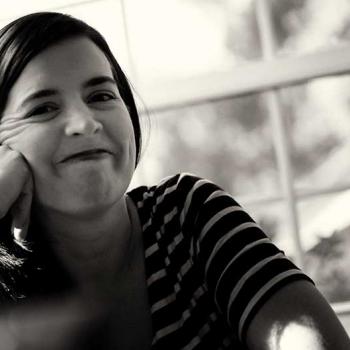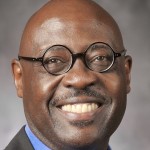By Dale Ryan
This is a story and brief prayer of gratitude for Bill (not his real name), who chose a door knob as his Higher Power and got a 30 day chip at the first A.A. meeting I attended in the winter of 1983 in Minneapolis, Minnesota.
I went to my first twelve step meeting to meet the requirements for a class in seminary. It was not a group with many Betty Ford graduates. It was mostly late-stage street drunks. The only thing I remember about that meeting is a guy who I will call Bill. Bill got a 30-day chip that night. He was pretty scruffy looking. The streets had taken a toll. But he had been sober for thirty days. When he came forward to pick up his 30-day chip, he was given the opportunity to speak for 2 minutes.
I don’t remember exactly what Bill said. He was not an accomplished public speaker. He wasn’t very clear. But he said something like: “My best thinking stole the last 30 years of my life. Can’t say I understand it but seems like something’s changed. I couldn’t figure out what to choose, so I chose a door knob as my Higher Power. And I’ve been sober now for thirty days. Go figure. I’m a grateful drunk.”
It was obvious that this was a man who had experienced something. He might not have known the word “Grace” but that’s what i saw. I saw a man who had experienced Grace for the first time in his life. He was radiant with it. Overflowing with it. Hopeful. Eager for more.
Before going on, I should probably say a word about the ‘door knob’ part of the story. If you are in A.A. or any other twelve step fellowship you probably already get this. But it’s pretty confusing to other people. It just sounds completely crazy. So let me be clear: nobody, absolutely nobody, really thinks that a door knob is a very good choice for a Higher Power. It’s a kind of inside joke. It’s what you say when you are completely clueless and know that you are completely clueless. Roughly translated it means: “I haven’t got the slightest idea who or what might be available to help me but I’ve completely come to the end of self-reliance. I can’t do this. So if there is a Higher Power who is willing to restore me to sanity, I’m available to be helped.” I know that may not sound like a whole lot of faith to some people. But it was enough faith to turn Bill’s life upside down. It was his mustard seed of faith—the smallest amount imaginable. Thankfully, God was paying attention and didn’t insist that Bill produce a larger quantity of faith before coming close and doing what needed to be done.
I don’t think I payed any attention after Bill sat down. I don’t remember anything else about that meeting. I do remember sitting there with a very strange, emerging awareness. It arose first as a question: “How can it be that Bill, who knows absolutely nothing about God, can be having such a powerful and grace-full experience of God while I, a person who is definitely into the Advanced Christian kind of stuff, am so completely miserable?”
You see, at that time in my life I had precious little experience with Grace of the kind Bill was experiencing. I knew, of course, all about Grace. I had all the words that Bill didn’t yet know. Big multi-syllabic words. I knew the subtleties, the complexities, the nuances, the disputes. I could have written a very nice Advanced Christian essay about the fine points of the Doctrine of Grace. But there was nothing in my life to compare with the experience that Bill was living. Nothing.
Looking back, it is quite clear to me that there was a dissonance between the God of my formal theology and the god who I actually lived with—the god who I woke up to in the morning. The deity I have actually served for most of my life, my actual Higher Power, was what I call the god-of-impossible-expectations. This god is the kind of stern-faced, unapproachable deity who has little to say beyond: “you should try harder” or ‘that’s not good enough”. This impossible-to-please deity was an idol that I had crafted for myself primarily out of my experiences in childhood.
The god-of-impossible-expectations is a worse choice for a Higher Power than a door knob. Much worse. Firstly, a door knob doesn’t constantly yell at you. Nor does it spend all day writing down every mistake you make, every impure thought, every shortcoming. And, secondly, a door knob has the distinct advantage of not being me. It is at least outside of me. Other than me. But the god-of-impossible-expectations, like many other gods who are not-God, was entirely a psychological construct created by me, owned by me and in residence deep within me. Its main job appears to have been the distribution of shame and fear. It was the voice which drove my relentless quest to get everything right, to have all the right answers to all the right questions, to be without fault. This deity did not distribute grace. It was too busy reminding me about how undeserving I was to receive any of it.
Sitting in that room, in mid-winter, in Minneapolis, as Bill’s words rattled around in my obsessional brain… something became clear. I awoke to something. It was the first of a series of moments-of-clarity that changed my life. Moments of clarity are almost always difficult to explain. I can’t fully explain this one. The best I can do is to say that I “heard” something like this: “If you are not able to somehow find the spiritual humility to learn from Bill, you will be doomed to a life of trying, trying harder and trying your hardest to please an impossible-to-please god”.
All I can say is that the plain, simple truth was that a guy who had chosen a door knob as his Higher Power had something that I knew I needed. Desperately needed. It was something about spiritual humility, something about the futility of self-reliance, something about letting God be God.
My idolatrous attachment to the god-of-impossible-expectations was not miraculously removed that day. It took a long time to throw that bum out. As Jesus emphasized, it is not easy to clean house. But it probably also took quite a while for Bill’s sobriety to become stable. We both needed a one-day-at-a-time experience of Grace. And that, thankfully, is exactly what was available to both of us when we got out of the way.
Dear God,
Thank you for Bill.
Thank you for sending him to that meeting.
Thank you for having him say what I needed to hear.
Thank you for helping Bill stay sober when he didn’t know anything about you.
When he was blind you led him down unfamiliar paths.
Thank you for helping me when I thought I knew everything about you.
When I was blind you led me down unfamiliar paths.
Both of us, in our blindness, needed you desperately.
And there you were.
You woke us up.
I am still one-day-at-a-time grateful.
Amen.
Dale Ryan is associate professor of recovery ministry at Fuller Theological Seminary and director of the Fuller Institute for Recovery Ministry. He was previously a member of the faculty at University of Wisconsin-Madison and pastor of care and fellowship at Whittier Area Baptist Fellowship in Whittier, California. Ryan also serves as the CEO of Christian Recovery International, an organization helping the Christian community become a safer and more accommodating place for people recovering from addiction, abuse, or trauma. He has written several books, the most recent being Soul Repair: Rebuilding a Spiritual Life (co-authored, 2008). He has also published numerous articles in STEPS, a publication of the National Association for Christian Recovery.











